About the Women in Science Program
About the Women in Science Program
Formerly the Li Ka Shing Foundation Women in Science Program (2008-2012), the Chau Hoi Shuen Foundation Women in Science Program launched in 2015 to award grants that support educational and research projects submitted by UC Berkeley female faculty members who are engaged in collaborative research with female scientists in China. The program provided two types of grants:
-
New Research Grants, in which two female faculty members will be selected to receive grants to pursue new research, and
-
Research Grants for Previous Recipients, in which one female faculty member who previously has received funding from the Women in Science Program will receive a research grant to continue work in her respective field and increase the impact of her research.
The Women in Science Program, which concluded in 2020, offered scientists opportunities for meaningful collaboration and long-term partnerships across campuses, with a particular emphasis on the biological sciences.
Frequently Asked Questions
- What is the Chau Hoi Shuen Foundation Women in Science Program?
-
The purpose of the Chau Hoi Shuen Foundation Women in Science Research Grant Program is to promote and support scientific and scholarly collaboration between female scientists in China and the United States. The grants support educational and research projects of UC Berkeley faculty who are engaged in collaborative research with scientists in China.
Each year the program makes up to two new awards and one faculty member previously funded through the Women in Science Program will be selected to receive a follow-on award to continue work in her respective field(s) and increase the impact of her research.
- What is the budget and duration of the award?
-
Each UC Berkeley grantee is awarded $50,000 for a project period of one year.
- How can funds be spent?
-
The funding may be used to support researchers, postdoctoral researchers, graduate and/or undergraduate students; research proposals and joint laboratories; faculty summer salary for up to one month; international seminars, conferences and colloquia; research materials, small equipment, supplies and/or travel expenses.
No overhead is assessed on the awards.
- Do applications need to be submitted to SPO for review?
-
No. Applications must be submitted directly to the Office of the Vice Chancellor for Research.
- Who is eligible to apply?
-
Applications to the program are restricted to full-time UC Berkeley female faculty at the Assistant and Associate ranks of any professorial series (including adjunct, in-residence, health sciences, clinical, and professor of clinical optometry).
Applicants must be full-time faculty at the university at the start of, and during the entire award period.
- How are the recipients selected?
-
Recipients are selected based on their excellence and high potential for making a lasting impact. Priority is given to projects that offer scientists opportunities for meaningful collaboration and long-term partnerships across campuses, with a particular emphasis in the biological sciences.
- When does support start?
-
Successful applicants will receive their awards in mid-July for the upcoming fiscal year (July 1- June 30).
- Which campus unit administers the program?
-
The Chau Hoi Shuen Foundation Women in Science Program is managed by the Office of the Vice Chancellor for Research.
- I have additional questions, who do I contact?
-
Please write to ltdsubs@berkeley.edu with any additional questions you might have.
Additional information about the Chau Hoi Shuen Foundation can be found at http://www.solinachau.com/.
Recipients
2020 Recipients
 Danica Chen
Danica Chen
Associate Professor, Department of Nutritional Sciences & Toxicology
Grant: Research Grant for Previous Recipients
Title: Targeting the Aging Pathways to Improve Human Health
Abstract: One of the most fundamental questions in biology is why we age. The past decades have witnessed a significant revision of a traditional view that aging is simply a random and passive process that is solely driven by entropy. In fact, the aging process is regulated genetically and lifespan can be extended by single gene mutations. Our research aims to understand signal transduction that regulates the aging process and explore therapeutic targets to slow or even reverse aging-associated degeneration. The most intriguing aspect of pharmaceutical intervention that targets the aging pathways is that, instead of targeting a specific disease, it has the potential of ameliorating numerous seemingly unrelated diseases associated with aging.
Profile: Danica Chen is an Associate Professor of Metabolic Biology, Nutritional Sciences & Toxicology at University of California at Berkeley, a member of Berkeley Stem Cell Center, and a member of QB3 Consortium in Lifespan Extension. She was a Searle Scholar, an Ellison Scholar, a Kavli Fellow, and a Hellman Fellow. Dr. Chen received Ph.D. in molecular and cell biology from University of California at Berkeley and obtained postdoctoral training in biology at Massachusetts Institute of Technology. Her research aims to understand the molecular and cellular mechanisms underlying aging-associated conditions and elucidate which aspects of aging-associated conditions are reversible. Recent studies from her lab have revealed mitochondrial stresses as causes of stem cell exhaustion and tissue degeneration during aging. She identified mitochondrial stress resistance programs that become dysregulated in aged stem cells, and demonstrated these programs can be targeted to improve survival and regenerative capacity of aged stem cells. These findings give hope for targeting aging-associated dysregulated cellular protective programs, such as the pathways regulated by NAD+-dependent enzymes sirtuins, to reverse stem cell aging, tissue degeneration and dysfunction.
Collaborator in China: Dr. Haiying Wang, an Associate Professor in the Department of Biochemistry and Molecular Biology at Peking University
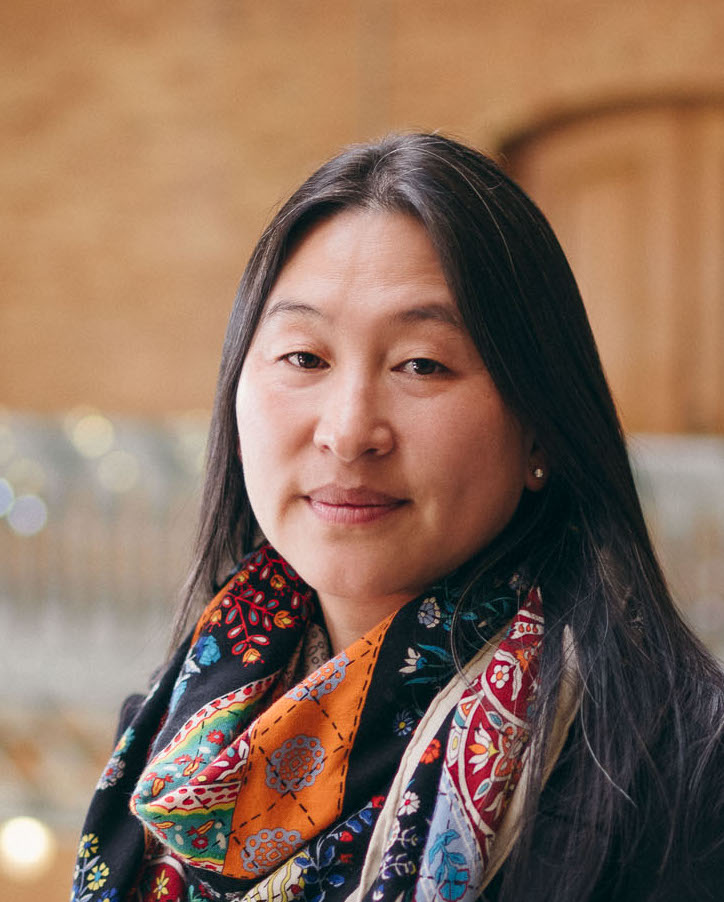 Ting Xu
Ting Xu
Associate Professor, Departments of Material Sciences & Engineering and Chemistry
Grant: New Research Grant
Title: Design Heteropolymer as Membrane Protein Mimetics to Regulate Endocyclic Pathway of Nanocarriers
Abstract: Interfacing polymers with biological systems seamlessly will positively impact biomaterial developments to improve human health and to meet technological demands in clean energy and environment. However, there is a significant knowledge gap in how synthetic polymers interact with cell membrane and guiding design rules to recapitulate functions of transmembrane proteins. Xu recently developed an orthogonal approach using statistic sequence control to design truly protein-like heteropolymers. We propose to carry out in-depth studies in the phase behavior of amphiphilic RHPs inserted in lipid bilayer at single chain level. Knowledge gained will guide biomaterial design for drug delivery, gene editing and separation membrane for water desalination.
Profile: Prof. Ting Xu is a professor in the Departments of Material Sciences and Engineering, Chemistry and a core faculty of UCBerkeley-UCSF joint bioengineering program. She received Ph.D from the Department of Polymer Science and Engineering in University of Massachusetts, Amherst and postdoctoral training from the University of Pennsylvania and National Institute of Science and Technology. Her interests rest at the interface among chemistry, soft matter, biology and material engineering. Her research focuses on understanding phase behaviors of multi-component systems and manipulating their assembly toward hierarchically structured functional materials for life science, environment and energy applications. She is the recipient of Office of Naval Research Young Investigator Award; Camille-Dreyfus Scholar-Teacher Award; ACS Arthur K. Doolittle Award; 3M Nontenured Faculty Award; DuPont Young Professor Award; and Bakar Fellow. She is a fellow of American Physical Society, American Chemical Society and serves on the Board of Directors of Materials Research Society since 2020.
Collaborator in China: Prof. Lihua Yang, Department of Materials Science and Engineering, University of Science and Technology of China
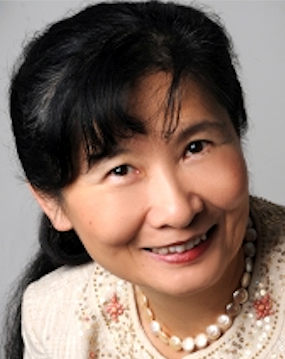 Luoping Zhang
Luoping Zhang
Adjunct Professor, Division of Environmental Health Sciences, School of Public Health
Grant: New Research Grant
Title: Formaldehyde-Induced Stem Cell Toxicity in Mouse Lungs
Abstract. Formaldehyde (FA) is a ubiquitous environmental pollutant and an economically important chemical produced mainly in China and the US. FA causes a blood cancer known as leukemia in humans; however, due to its reactivity, FA is unlikely to reach the bone marrow, the target tissue for initiating leukemia. Based on a recent discovery that mouse lungs contain blood-producing stem cells, we are testing a novel hypothesis that FA may damage these pulmonary stem cells that can travel back and forth between the lungs and bone marrow, where they can initiate leukemia. We will expose mice to FA in order to determine whether FA can reduce growth and fitness, and induce cellular and genetic toxicities in the stem cells of the mouse lung. This project, if successful, will clarify our understanding of how FA and other airborne pollutants could cause leukemia by damaging stem cells distant to the bone marrow.
Profile: Luoping Zhang is an Adjunct Professor in the School of Public Health, UC Berkeley. She received her PhD in Biochemical Toxicology at Simon Fraser University, B.C. Canada. For the past three decades, her research has focused on understanding molecular mechanisms of carcinogenesis in blood-forming systems caused by exposures to toxic chemicals in the environment. She has conducted multiple human biomarker studies of exposures to benzene, formaldehyde, and trichloroethylene in China along with her long-term collaborators at US-NCI and China-CDC. Her study results revealed that these toxicants induce hematotoxicity and genotoxicity in the blood cells of exposed people. To further explore and identify disease-related mechanisms associated with these chemicals, Zhang’s research team has developed and employed many high-throughput technologies, including OctoChrome FISH, array-based toxicogenomics and epigenomics, and innovative CRISPR-Cas9 gene-editing tools, in human studies and/or in animal models. Currently, Zhang is investigating an unconventional pathway of chemical exposures-linked leukemias and lymphomas.
Collaborator in China: Dr. Rui Li, Professor, School of Life Sciences, Central China Normal University, Wuhan, China.
2019 Recipients
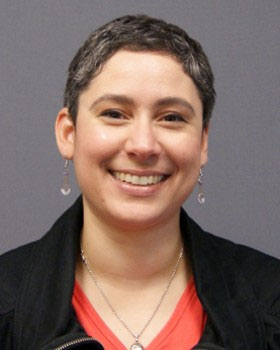 Jennifer Lewis
Jennifer Lewis
Assistant Adjunct Professor, Department of Plant and Microbial Biology
Grant: Research Grant for Previous Recipients
Title: Brachypodium as an Experimental System for the Study of Plant Disease and Immunity in Wheat
Abstract: Wheat is one of the world’s important food crops. The plant pathogens, Pseudomonas syringae and Fusarium graminearum, cause leaf and head blight in wheat, resulting in significant economic and food supply losses due to reduced grain yield and quality. Therefore, there is broad interest in developing durable resistance to combat infection. Jennifer Lewis (UC Berkeley) and Weihua Tang (Shanghai Institute of Plant Physiology and Ecology) were previously funded to develop Brachypodium as a novel monocot model to explore the immune response to these pathogens. We propose to further extend our collaboration to investigate the role of pathogen and host genes in contributing to disease or immunity in cereal species. This work will help develop healthy and resilient crops for enhanced food security. We will promote women in STEM and their retention through outreach to Shanghai Minhang high school and through UC Berkeley’s summer extension program which serves visiting Chinese students.
Profile: Dr. Lewis is an Adjunct Assistant Professor in the Department of Plant and Microbial Biology at UC Berkeley and a Principle Investigator at the UC Berkeley/USDA Plant Gene Expression Center. She received her Ph.D. from Cornell University and trained as a post-doctoral fellow at the University of Toronto. Dr. Lewis’ research focuses on the genetic and molecular basis of plant-microbe interactions, immune signaling in plants, and manipulation of host processes by pathogens. Her research will help gain a better understanding of the mechanisms of immune signaling and immune suppression in plants and develop tools to protect plants from infection. Dr. Lewis has a strong commitment to enhancing diversity in STEM and to training the next-generation of scientists.
Collaborator in China: Dr. Weihua Tang, Shanghai Institute of Plant Physiology and Ecology (SIPPE), Chinese Academy of Science
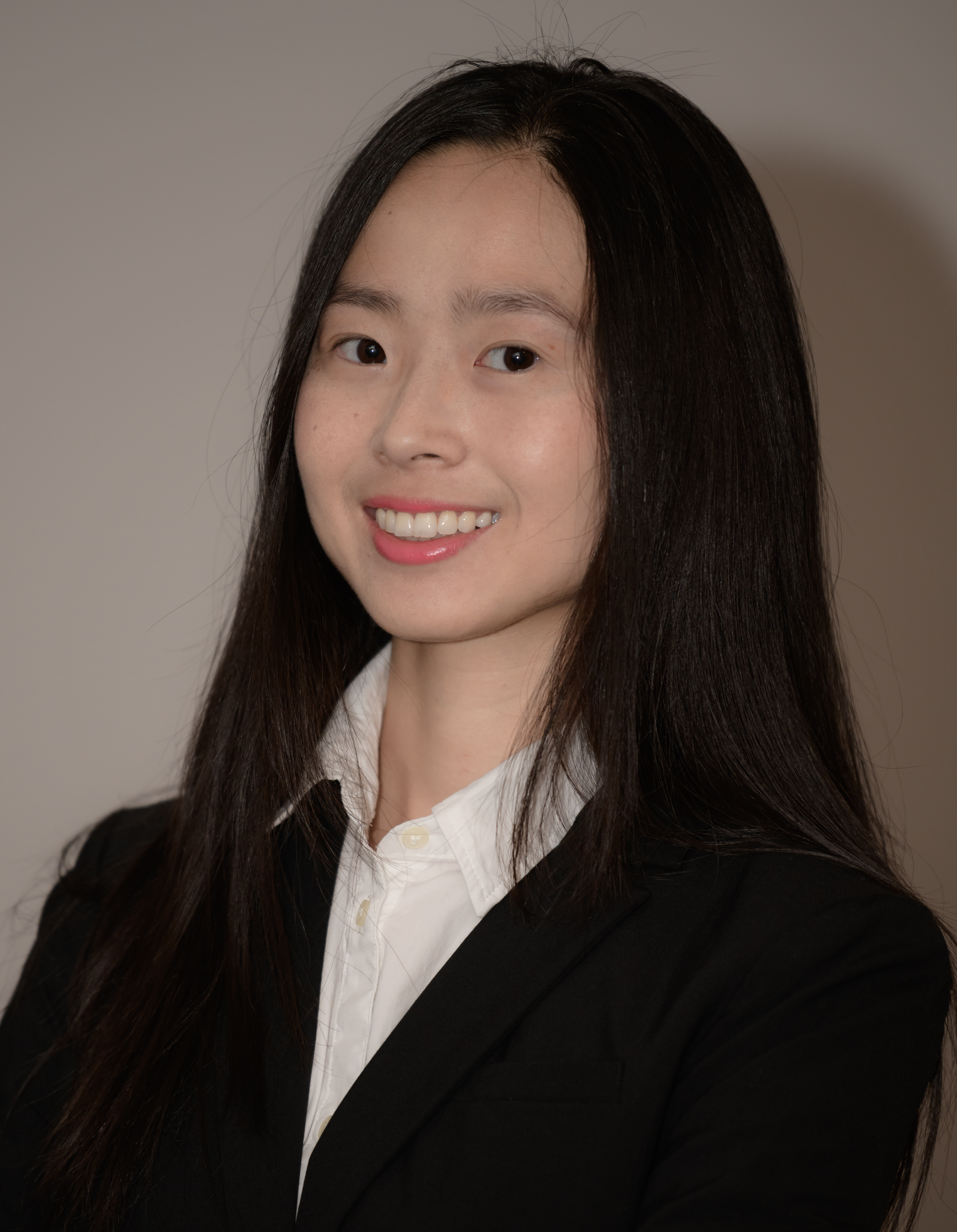 Grace Gu
Grace Gu
Assistant Professor, Department of Mechanical Engineering
Grant: New Research Grant
Title: Design and Fabrication of Materials for Suture-less Wound Closure and Repair
Abstract: In this work, we propose to design novel materials to guide wound closure without the need for surgery. Sutures and staples currently serve as the industry standard for wound sealing, but require highly trained clinicians for implementation and can agitate the body’s biological healing process. We present an approach to use materials adhered to the surface of the skin that will change shape when stimulated and automatically close the wound during the process. Computational approaches will be used to determine the optimum properties and design required for our material devices. These optimal designs will then be produced and their ability to close wounds will be evaluated via experiments. Through this collaborative work between Gu Lab and Meng Lab, we hope to not only design new, cost-effective materials for wound sealing, but also to gain a fundamental understanding of how to design and use stimuli-responsive materials for other fields.
Profile: Dr. Grace X. Gu is an Assistant Professor of Mechanical Engineering at the University of California, Berkeley. She received her Ph.D. degree in Mechanical Engineering from the Massachusetts Institute of Technology in 2018. Her current research focuses on creating new materials with superior properties for mechanical, biological, and energy applications using multiphysics modeling, artificial intelligence, and high-throughput computing, as well as developing intelligent additive manufacturing technologies to realize complex material designs previously impossible. Gu is the recipient of several awards, including the 3M Non-Tenured Faculty Award, MIT Tech Review Innovators Under 35, Johnson & Johnson Women in STEM2D Scholars Award, and Materials Research Society Graduate Student Medal.
Collaborator in China: Dr. Shu Meng, Department of Cardiology, Xinhua Hospital Affiliated to Shanghai Jiaotong University School of Medicine
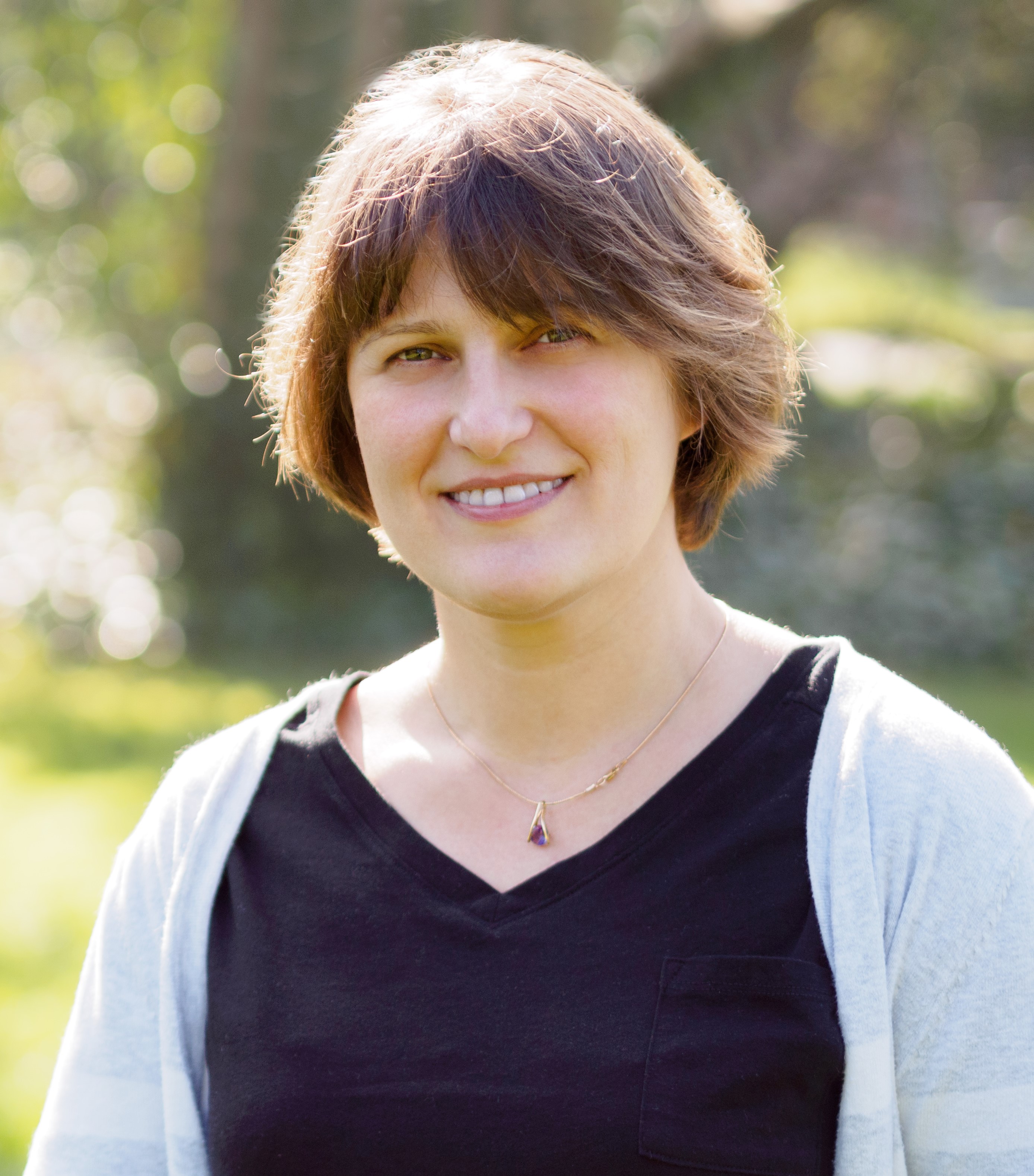 Polina Lishko
Polina Lishko
Associate Professor, Department of Molecular and Cell Biology
Grant: New Research Grant
Title: The Impact of Endocrine Disrupting Chemicals on Reproductive Health and Male Fertility
Abstract. A growing number of studies link infertility and chronic exposure to organic compounds such as bisphenol A (BPA) and phthalates. They are present in food and beverage containers, and their evaporation increases with age and usage of the product. Animal studies with BPA/phthalates have shown a dose-dependent decrease in fertility, however, limited research has been conducted on the acute effect of phthalates on male fertility, sperm development, and fertilization process. According to our research, exposure to phthalates is linked to impaired spermatogenesis and poor fertilization outcome in mammals. Our research goal is to reveal the pathophysiological mechanisms and molecular connection between endocrine disrupting chemicals and impaired fertility. This knowledge will reveal molecular basis of reproductive risks posed by these environmental toxins.
Profile: Polina Lishko is an Associate Professor in the Department of Molecular and Cell Biology at UC Berkeley. She earned her Ph.D. in Biophysics at the Bogomoletz Institute of Physiology in Ukraine in 2000, where she studied the physiology of neuronal ion channels. She did her postdoctoral fellowships at Harvard Medical School, and later at Harvard University working on molecular mechanisms of phototransduction and sensory physiology. Until 2011, Dr. Lishko was an instructor at the University of California, San Francisco, where she studied the regulation of sperm physiology by ion channels. In 2012, she joined UC Berkeley faculty, where her team is studying endocrine regulation of reproduction and male fertility. In addition to being a Rose Hill Innovator, Pew Biomedical Scholar and a Sloan Fellow, Dr. Lishko has received Margaret Oakley Dayhoff Award in Biophysics, Matthew P. Hardy Young Andrologist award from American Society of Andrology, and recently was named Bakar Spark Fellow.
Collaborator in China: Dr. Xiangdong Li, PhD; Professor, College of Life Sciences, China Agricultural University, Beijing, China
2018 Recipients
 Mimi Koehl
Mimi Koehl
Professor, Department of Integrative Biology
Grant: Research Grant for Previous Recipients
Title: How Body Form Affects the Hydrodynamics of Swimming and Feeding by Zooplankton
Abstract: Zooplankton are small animals that swim in the water column of oceans. They are a critical link in aquatic food webs because they eat microorganisms and are the prey of larger animals. Many types of zooplankton have protruding spines. In spite of the ecological importance of zooplankton and the ubiquity of spines, the function of those spines is not known. We will use larval barnacles as a research system to study the hydrodynamic effects of spines and their effects on swimming, sinking, and feeding performance of these small animals, which operate in a size and speed range where the fluid dynamics are still poorly understood. This project is interdisciplinary, combining Dr. Koehl’s expertise in ecological biofluiddynamics, with Dr. Chan’s expertise in larval behavior and ecology. We also propose to interface this project with a WiSE program for high school girls in Hong Kong to encourage their participation in STEM.
Profile: Dr. Koehl is a Professor in the Department of Integrative Biology at UC Berkeley and earned her Ph.D. in Zoology at Duke University. She studies the physics of how organisms interact with their environments, focusing on how microscopic creatures swim and capture food in turbulent water flow, how organisms glide in turbulent wind, how wave-battered marine organisms avoid being washed away, and how olfactory antennae catch odors from water or air moving around them. Professor Koehl is a member of the National Academy of Sciences and the American Academy of Arts and Sciences. Her awards include a MacArthur “genius grant,” a Presidential Young Investigator Award, a Guggenheim Fellowship, the John Martin Award (Association for the Sciences of Limnology and Oceanography), the Borelli Award (American Society of Biomechanics), the Rachel Carson Award (American Geophysical Union), and the Muybridge Award (International Society of Biomechanics).
Collaborator in China: Dr. Kit Yu Karen Chan, Division of Life Sciences, Hong Kong University of Science and Technology
 Jennifer Lewis
Jennifer Lewis
Assistant Adjunct Professor, Department of Plant and Microbial Biology
Grant: New Research Grant
Title: Brachypodium as an Experimental System for the Study of Plant Disease and Immunity in Wheat
Abstract: Wheat is one of the most important foods for human consumption. Pseudomonas syringae and Fusarium graminearum are the two major pathogens that cause leaf and head blight in wheat, resulting in significant economic losses due to reduced grain yield and quality. Therefore, there is broad interest in developing durable resistance to combat infection. Dr. Lewis’ lab at UC Berkeley will collaborate with Dr. Tang’s lab at Shanghai Institute of Plant Physiology and Ecology, to develop Brachypodium as a novel monocot model to explore the recognition mechanism of immune responses to these pathogens. This collaboration will facilitate the investigation of resistance gene function in cereal species, especially in wheat. This work will assist in developing healthy and resilient crops for enhanced food security. During our collaboration period, two mini-symposia will be organized in Berkeley and Shanghai to facilitate communication between plant immunologists from the US and China.
Profile: Dr. Lewis is an Adjunct Assistant Professor in the Department of Plant and Microbial Biology at UC Berkeley and a Principle Investigator at the UC Berkeley/USDA Plant Gene Expression Center. She received her Ph.D. from Cornell University and trained as a post-doctoral fellow at the University of Toronto. Dr. Lewis’ research focuses on the genetic and molecular basis of plant-microbe interactions, immune signaling in plants, and manipulation of host processes by pathogens. Her research will help gain a better understanding of the mechanisms of immune signaling and immune suppression in plants and develop tools to protect plants from infection. Dr. Lewis has a strong commitment to enhancing diversity in STEM and to training the next-generation of scientists.
Collaborator in China: Dr. Weihua Tang, Shanghai Institute of Plant Physiology and Ecology, Chinese Academy of Science
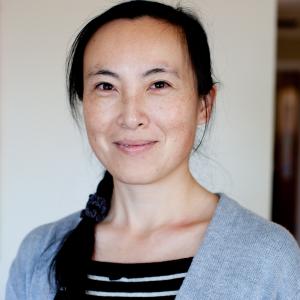 Qing Zhou
Qing Zhou
Associate Professor, Department of Psychology
Grant: New Research Grant
Title: Grandparent Involvement in Childrearing in Chinese Families: Consequences for Children’s Biological Stress Responses and Behavioral Adjustment
Abstract: A culturally unique phenomenon in China is grandparent involvement in childrearing. Two-thirds of Chinese children in urban areas live in households with grandparents. Previous studies have suggested that children who were primarily cared for by grandparents have more behavioral and emotional problems than those who were cared for by parents. Yet, the mechanisms explaining these differences remain poorly understood. This proposal aims to examine the short-term and long-term consequences of grandparent involvement on children’s biological stress responses. By comparing preschool-age children (N = 50) who were raised primarily by grandparents with children who were raised primarily by parents (N = 50) on their hypothalamic-pituitary-adrenal axis and the autonomic nervous stress system reactivity, behavioral problems, as well as family conflict and parent-child relationship, the study will elucidate the underlying biological mechanisms of unique Chinese family dynamics. The study findings can inform family-based resiliency interventions and education programs serving Chinese families.
Profile: Dr. Zhou is an Associate Professor in the Department of Psychology and the Director of the Culture and Family Study Lab at UC-Berkeley. Her research focuses on cultural, family, and temperament influences on socio-emotional and academic development of children and youth. Her team has conducted longitudinal studies on Chinese families in China and Chinese and Mexican immigrant families in the US. She has published more than 50 manuscripts, including publications in leading journals such as Child Development and Developmental Psychology. Her research has been funded by the National Institutes of Health and the Foundation for Child Development. She serves on the editorial boards of Cultural Diversity and Ethnic Minority Psychology and British Journal of Developmental Psychology and on the International Affairs Committee of the Society for Research in Child Development.
Collaborator in China: Dr. Xiuyun Lin, School of Psychology, Beijing Normal University
(This study also will be conducted in collaboration with Dr. Nancy Liu, Department of Psychology, UC Berkeley.)
2017 Recipients
For 2017, the Chau Hoi Shuen Foundation generously provided funding to enable the award of three New Research Grants and two Research Grants for Previous Recipients.
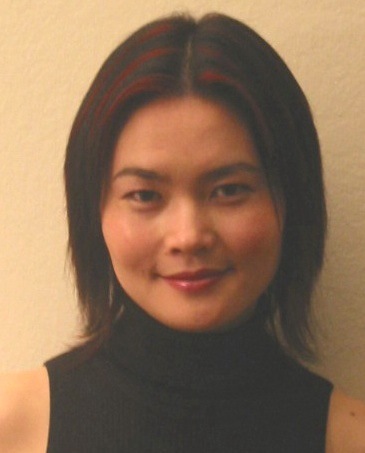 Danica Chen
Danica Chen
Associate Professor, Department of Nutritional Sciences and Toxicology
Grant: New Research Grant
Title: Targeting the Aging Pathways to Improve Human Health
Abstract: One of the most fundamental questions in biology is why we age. The past decades have witnessed a significant revision of a traditional view that aging is simply a random and passive process that is solely driven by entropy. In fact, the aging process is regulated genetically, and lifespan can be extended by single gene mutations. Our research aims to understand signal transduction that regulates the aging process and explore therapeutic targets to slow or even reverse aging-associated degeneration. The most intriguing aspect of pharmaceutical intervention that targets the aging pathways is that, instead of targeting a specific disease, it has the potential of ameliorating numerous seemingly unrelated diseases associated with aging.
Profile: Dr. Chen is an Associate Professor of Metabolic Biology in the Department of Nutritional Sciences and Toxicology at UC Berkeley, a member of the Berkeley Stem Cell Center, and a member of the QB3 Consortium in Lifespan Extension. She was a Searle Scholar, an Ellison Scholar, a Kavli Fellow, and a Hellman Fellow. Dr. Chen received a Ph.D. in molecular and cell Biology from UC Berkeley and obtained postdoctoral training in biology at the Massachusetts Institute of Technology. Her research aims to understand the molecular and cellular mechanisms underlying aging-associated conditions and elucidate which aspects of aging-associated conditions are reversible. Recent studies from her lab have revealed mitochondrial stresses as causes of stem cell exhaustion and tissue degeneration during aging. She identified mitochondrial stress resistance programs that become dysregulated in aged stem cells and demonstrated these programs can be targeted to improve survival and regenerative capacity of aged stem cells. These findings give hope for targeting aging-associated dysregulated cellular protective programs, such as the pathways regulated by NAD+-dependent enzymes sirtuins, to reverse stem cell aging, tissue degeneration, and dysfunction.
Collaborator in China: Dr. Haiying Wang, Department of Biochemistry and Molecular Biology, Peking University
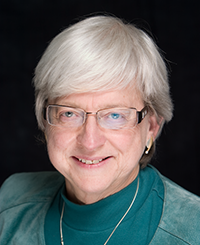 S. Katharine Hammond
S. Katharine Hammond
Professor of Environmental Health Sciences, School of Public Health
Grant: Research Grant for Previous Recipients
Title: Exposure to Indoor Air Pollutants and Associated Immunological Effects on Rural Chinese Women
Abstract: The immune system is critical to our health beyond the obvious. Our research has found associations between polycyclic aromatic hydrocarbons in air pollution and impaired immunological functions. However, the precise molecular and cellular pathways leading to the immunological impairment remain largely unknown. Funded by the Chau Hoi Shuen Foundation Women in Science Program in 2015, our group has developed a productive collaboration with Dr. Junling Wang’s research group at Lanzhou University. They have established methods to measure T-regulatory cell functions in blood samples and gained experience in conducting air pollution field sampling and recruitment for epidemiologic studies. We propose to further collaboratively explore mechanisms by which the immune system responds to extremely high air pollution in China and associated adverse health effects among rural Chinese women during the heating season. We will conduct research-related workshops for students and researchers at Lanzhou University while carrying out the proposed study.
Profile: The focus of Dr. Hammond’s career has been assessing exposure to toxic air contaminants for epidemiologic studies, both environmental and occupational. From 2000-2011 she headed the exposure assessment team for the Fresno Asthmatic Children’s Environment Study (FACES), which was funded by CA Air Resources Board and later by NLHB. She currently leads the Berkeley/Stanford Children’s Environmental Health Center, which is examining the several adverse health effects of air pollution on children, including premature births, birth defects, immune function disruption, asthma, obesity, and glucose dysfunction. She also studies indoor pollution from burning coal in China, cook stoves in Nepal, Guatemala, and Nigeria, and from secondhand smoke in the US and globally. Dr. Hammond’s expertise in chemistry and in public health enable her to develop innovative methods to collect and analyze air contaminants and create exposure models to evaluate exposure for epidemiologic studies. See the Children’s Health & Air Population Study – San Joaquin Valley website for more information.
Collaborators in China: Dr. Junling Wang, School of Public Health, Lanzhou University and Dr. Hong Gao, College of Earth and Environmental Sciences, Lanzhou University
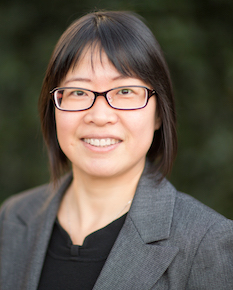 Haiyan Huang
Haiyan Huang
Associate Professor, Department of Statistics
Grant: New Research Grant
Title: Computational Approaches for Diagnosing Major Psychiatric Diseases
Abstract: Schizophrenia (SZ), bipolar disorder (BD), and major depressive disorder (MDD) are distinct diagnostic categories in current psychiatric nosology, yet they are also found to share a lot of clinical, biological, and neurobiological features. In this project, we will identify and understand the extent of shared and distinct brain alterations in SZ, BD, and MDD through novel network and factor analysis of functional Magnetic Resonance Imaging (fMRI) data. Our ultimate goal is to use the derived representative features for SZ, BD, and MDD to build an automatic diagnosis system, the first of its kind, to predict how likely a patient has developed either or none of the three disorders given the patient’s fMRI measurements, clinical, and other relevant information. We note that no previous studies have examined brain functional features concurrently in these three disorders.
Profile: Dr. Huang is a faculty member in the Department of Statistics at UC Berkeley. She is also affiliated with the graduate group in Biostatistics and the Center for Computational Biology on campus. Prior to joining UC Berkeley, Dr. Huang did a two-year postdoc in applied statistics and computational biology at Harvard University. She obtained her Ph.D. in applied mathematics from the University of Southern California and received a B.S. in mathematics from Peking University, China. As an applied statistician, her research is at the interface between statistics and data-rich scientific disciplines such as biology and medicine. Over the past decades, rapidly evolving biological and medical technologies have generated enormous high-dimensional, complex, noisy data, presenting increasingly pressing challenges to statistical and computational science. Her group has devoted to addressing various statistical modeling and analysis challenges from these data.
Collaborator in China: Dr. Fei Wang, Department of Psychiatry, The First Affiliated Hospital, China Medical University
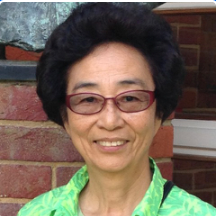 Z. Renee Sung
Z. Renee Sung
Professor, Department of Plant and Microbial Biology
Grant: Research Grant for Previous Recipients
Title: Epigenetic Regulation of Seed Germination and Stress Response in Plants
Abstract: My laboratory has been studying the mechanism that represses flowering and seed development, whereby enabling vegetative growth and expanding life span. We focus on the epigenetic mechanisms that regulate the flower and seed development genes by the Polycomb Group (PcG) and trithorax Group (trxG) protein complexes. We also take a phylogenetic approach to study the origin and evolution of the PcG proteins, as well as their function in early emerging plants. The long term goal is to understand their contribution in the evolution of plant development and generation of diverse morphology. Since Dr. Li Pu has started her own laboratory in China, we continue to collaborate on this research and expand the work to epigenetic mechanism regulating stress tolerance in crops, such as maize. The Chau Hoi Shuen Foundation Women in Science Program grant funds will also be used to organize and hold a workshop on “How to promote women scientists in China?”
Profile: Dr. Sung received her B.S. degree in botany from National Taiwan University and Ph.D. degree in plant physiology from UC Berkeley. Her Postdoctoral research was on plant somatic genetics at the Massachusetts Institute of Technology. She joined the UC Berkeley faculty to continue to develop a somatic genetics system in plants. Later, she directed her research program to understanding the principles and mechanisms of plant development. She has served as the Associate Dean in the Graduate Division, in charge of Graduate Fellowships and the Graduate Opportunity Program. Over the years, she became a proponent for diversity on campus, with particular interest in addressing issues akin to minority women in Academia.
Collaborator in China: Dr. Li Pu, Biotechnology Research Institute, Chinese Academy of Agricultural Sciences
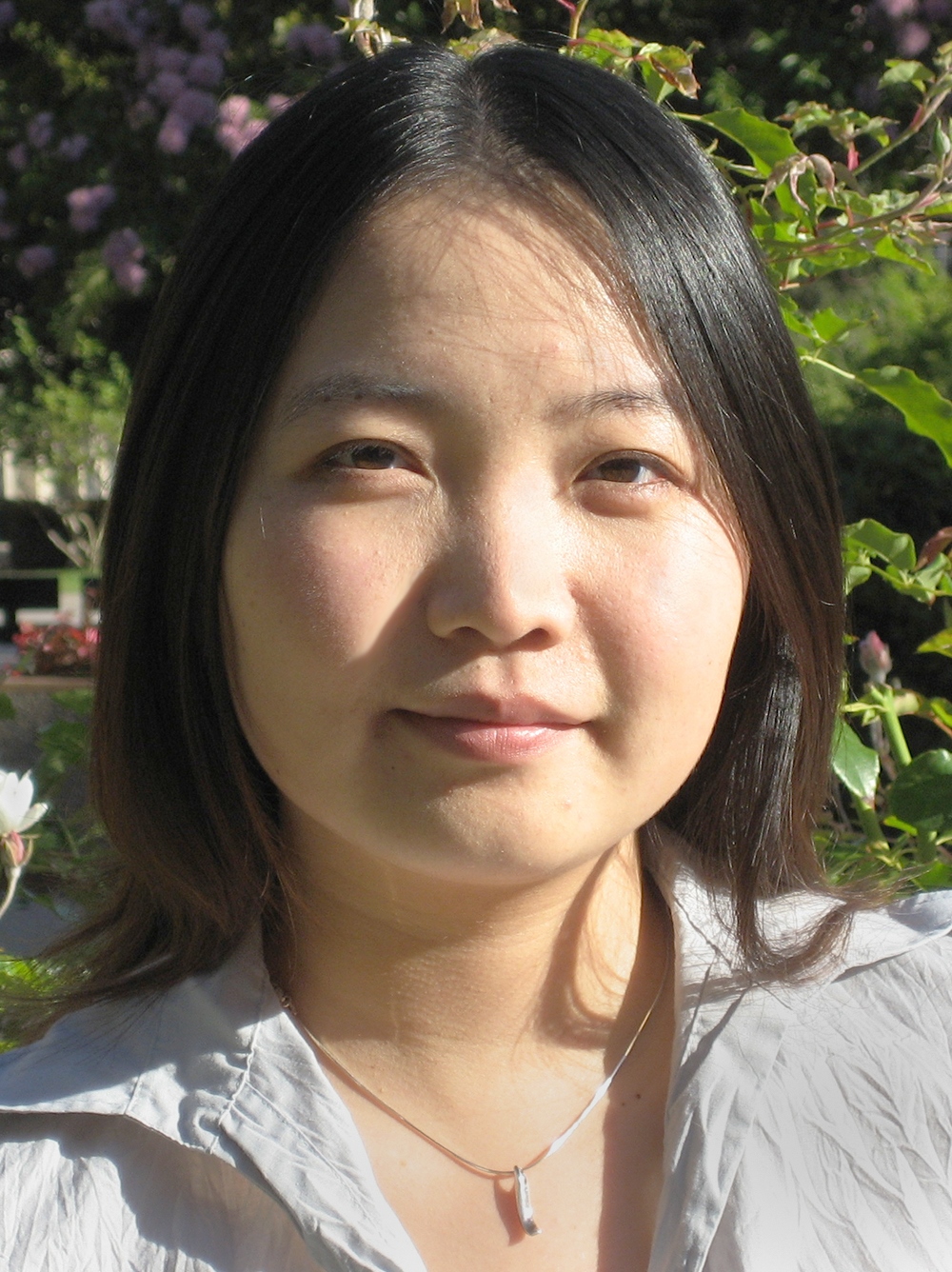 Wenjun Zhang
Wenjun Zhang
Assistant Professor, Department of Chemical and Biomolecular Engineering
Grant: New Research Grant
Title: Discovery of Novel Bioactive Natural Products from Streptomyces albus
Abstract: Natural products produced by microbes are among the most important pharmaceutical compounds known to mankind. With the rapid rise in resistance to antibiotics and cancer chemotherapeutics, novel and bioactive natural products are urgently needed for successful new drug discovery and development. In this project, we focus on new natural product discovery from Streptomyces albusJ1074, a commonly used model Streptomyces strain. We will reveal possible new molecular scaffolds and functionalities with promising biological activities and contribute to the further understanding of regulation and metabolism of this organism for biotechnology applications. This study is a pilot research for long-term collaborative efforts between UC Berkeley and the South China Sea Institute of Oceanology, Chinese Academy of Sciences on new bioactive natural product discovery.
Profile: Dr. Zhang is an Assistant Professor in the Department of Chemical and Biomolecular Engineering at UC Berkeley and the Charles R. Wilke Endowed Chair in Chemical Engineering. She received her B.S. and M.S. in biochemistry from Nanjing University, China, studying protein electrochemistry. In 2009 she earned her Ph.D. in chemical engineering at the UCLA with Yi Tang, studying the biosynthesis of aromatic polyketides of both bacterial and fungal origins. She continued the research of natural product biosynthesis as a postdoctoral researcher with Christopher T. Walsh at Harvard Medical School before joining UC Berkeley in 2011. Her laboratory is studying natural product biosynthesis and engineering for applications related to both bioenergy and human health. She is the author of over 50 original journal articles for her research and has received awards including being named a Pew Scholar (2012), NIH Director’s New Innovator (2015), a Sloan Research Fellow (2016), etc.
Collaborator in China: Dr. Junying Ma, Key Laboratory of Tropical Marine Bio-resources and Ecology, South China Sea Institute of Oceanology, Chinese Academy of Sciences
2016 Recipients
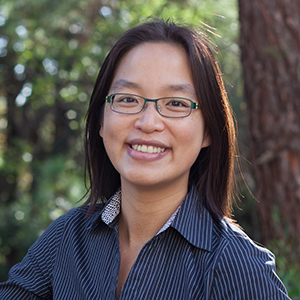 Ming Hammond
Ming Hammond
Assistant Professor, Department of Chemistry and Department of Molecular and Cell Biology
Grant: New Research Grant
Title: Bringing Chemical Tools to Study RNA Epigenetics
Abstract: This collaborative research project seeks to overcome a key technological roadblock to understanding the function and regulation of the most common epigenetic RNA modification, called m6A (N6-methyladenosine). The research proposal spans biological and chemical sciences and brings together two women faculty with strong track records of accomplishment and innovation in the study of m6A modification (Dr. Guifang Jia) and cofactor chemistry (Dr. Ming Hammond). In addition to leveraging our complementary expertise to develop a transcriptome-wide sequencing method for single-base resolution mapping of m6A RNA modification, we will use the grant funds to visit each other’s labs and promote each other’s research through a series of seminars at universities in the Bay Area and China.
Profile: Dr. Hammond graduated from the California Institute of Technology with a B.S. in Chemistry with Honors in 2000. As a Howard Hughes Medical Institute predoctoral fellow, she earned her Ph.D. in Chemistry from UC Berkeley in 2005 with Dr. Paul Bartlett for development of beta-strand peptide mimics that are programmable to block specific protein-protein interactions. As a Burroughs Wellcome Fund Career Award at the Scientific Interface fellow, Hammond performed postdoctoral research at Yale University with Dr. Ronald Breaker, where she switched to studying small molecule-binding RNAs called riboswitches. Hammond rejoined UC Berkeley in 2009 as an Assistant Professor in the Department of Chemistry and Department of Molecular and Cell Biology. Her research supported by an NIH New Innovator Award focuses on RNA-based fluorescent biosensors for enzyme discovery, activity profiling, and small molecule imaging in live cells. Highlights include the first turn-on sensors for imaging signals called cyclic dinucleotides and discovery of a signaling molecule and riboswitch receptor that regulates electrical current production in Geobacter bacteria, which was one of Science Signaling journal’s “2015 Signaling Breakthroughs of the Year.”
Collaborator in China: Dr. Guifang Jia, College of Chemistry and Molecular Engineering, Peking University
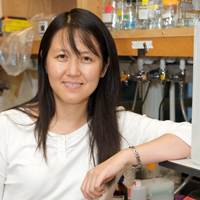 Lin He
Lin He
Associate Professor of Cell and Developmental Biology, Department of Molecular and Cell Biology
Grant: Research Grant for Previous Recipients
Title: Identify and Characterize miRNA Regulators for Lung Cancer Metastasis
Abstract: My research group received funding from the Chau Hoi Shuen Foundation Woman in Science program last year, which allowed us to establish a fruitful collaboration with Dr. Lixing Zhan’s group at Shanghai Institutes for Biological Sciences at the Chinese Academy of Sciences, and to foster a close interaction among members of the two groups. In 2015, we successfully demonstrated that the miR-200 family miRNAs are potent regulators to restrict the metastatic potential of lung adenocarcinomas. During this collaboration, Dr. Zhan’s lab developed a novel 3D cell culture system to measure the metastatic potential of lung adenocarcinoma cells, while my lab developed powerful mouse models to study lung cancer metastasis in vivo. We are currently joining forces to characterize the molecular and cellular mechanisms of miR-200 functions in restricting the metastatic potential and to explore the clinical significance of our finding using genomics and human clinical samples. This study would generate important findings in the miRNA and cancer field.
Profile: Dr. Lin received her doctoral degree at Stanford Medical School with Dr. Greg Barsh, before her postdoctoral training with Dr. Greg Hannon at Cold Spring Harbor Laboratory. She joined the Berkeley faculty in 2008 to explore the roles of microRNAs in the oncogenic and tumor suppressor pathways using mouse tumor models. Dr. Lin is currently an Associate Professor at UC Berkeley.
Collaborator in China: Dr. Lixing Zhan, Institute for Nutritional Sciences, Shanghai Institute for Biological Sciences, Chinese Academy of Sciences
 Amy Herr
Amy Herr
Lester John and Lynne Dewar Lloyd Distinguished Professor, Department of Bioengineering
Grant: New Research Grant
Title: High Selectivity Single Cell Measurements
Abstract: Owing to the hypothesized involvement of tumor initiating cells in seeding metastases, recent research suggests that these cells may be powerful new prognostic biomarkers. This variation may dictate how many cells are required to seed metastasis and what defines cell aggression. Modifications to intracellular proteins (e.g., phosphorylation) drive cell signaling and are implicated in migration and aggressiveness. We will design and develop single cell resolution measurements of key signaling proteins and phosphorylated forms in single cells. Presently, no analytical tools exist to quantify cell to cell variation in protein signaling and activation with the multiplexing and sensitivity needed for single cell profiling. By designing sophisticated single cell protein separations, we aim to contribute new ways to understand signaling activation among individual cells in sparingly limited starting populations. This study would serve as pilot research for follow on studies linking the cell to cell variation in activation to prognosis with clinical partners.
Profile: Dr. Herr received a B.S. degree in Engineering and Applied Science from the California Institute of Technology and M.S. and Ph.D. degrees from Stanford University in Mechanical Engineering. She is currently the Lester John and Lynne Dewar Lloyd Distinguished Professor of Bioengineering at UC Berkeley. Prior to joining UC Berkeley, she was a staff member in the Biosystems Research Group at Sandia National Laboratories (Livermore, CA). Her research interests include bioinstrumentation innovation needed to advance quantitation in life sciences and clinical problems, in particular the study and application of electrokinetic phenomena in multi-stage, heterogeneous bioanalytical microsystems. Her pedagogical interests are in bioengineering design, including innovation and translation. Dr. Herr is an elected Fellow of the American Institute of Medical and Biological Engineering (AIMBE) and a Board member of the Chemical & Biological Microsystems Society (CMBS). She is also faculty advisor to the UC Berkeley chapter of the Society of Women Engineers (SWE) and the Graduate Women in Engineering (GWE).
Collaborator in China: Dr. Zhao Meiping, College of Chemistry and Molecular Engineering, Peking University
2015 Recipients
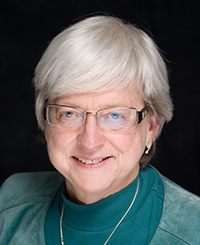 S. Katharine Hammond
S. Katharine Hammond
Professor of Environmental Health Sciences, School of Public Health
Grant: New Research Grant
Title: Health Effects of Air Pollution on Children
Abstract: We will begin a study of the health effects of air pollution on children, specifically whether exposure to polycyclic aromatic hydrocarbons (PAHs) in ambient air pollution leads to hypermethylation of the Foxp3 gene, thereby causing Treg-cell suppression in children living in Lanzhou, China. Our previously published work found an important link between PAHs in ambient air and changes at the DNA level in immune cells that led to their impaired function in children living in California. We will explore if the association can be observed in Lanzhou, China, where ambient air pollution levels are much higher than those we studied in California, USA. This proposed study would serve as pilot work for major research on health effects, especially immune effects, of air pollution on children.
Profile: The focus of Dr. Hammond’s career has been assessing exposure to toxic air contaminants for epidemiologic studies, both environmental and occupational. From 2000-2011 she headed the exposure assessment team for the Fresno Asthmatic Children’s Environment Study (FACES), which was funded by CA Air Resources Board and later by NLHB. She currently leads the Berkeley/Stanford Children’s Environmental Health Center, which is examining the several adverse health effects of air pollution on children, including premature births, birth defects, immune function disruption, asthma, obesity, and glucose dysfunction. She also studies indoor pollution from burning coal in China, cook stoves in Nepal, Guatemala, and Nigeria, and from secondhand smoke in the US and globally. Dr. Hammond’s expertise in chemistry and in public health enable her to develop innovative methods to collect and analyze air contaminants and create exposure models to evaluate exposure for epidemiologic studies. See the Children's Health & Air Pollution Study - San Joaquin Valley website for more information.
Collaborator in China: Dr. Junling Wang, School of Public Health, Lanzhou University
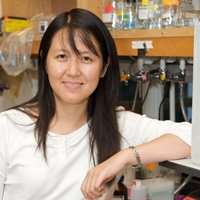 Lin He
Lin He
Associate Professor of Cell and Developmental Biology, Department of Molecular and Cell Biology
Grant: Research Grant for Previous Recipients
Title: Identify and Characterize miRNA Regulators for Lung Cancer Metastasis
Abstract: Lung cancer is the leading cause of cancer-related death in the United States, and its occurrence in China grows rapidly. The advanced lung cancer is often associated with frequent metastasis, which leads to the high mortality rate. Using a Kras-driven mouse lung cancer model, we have isolated multiple non-metastatic and metastatic lung tumors and derived cell lines to recapitulate the different metastatic potentials in functional assays. In collaboration with Dr. Lixing Zhan, a female cancer biologist in China, we established a 3D cell culture system that allows detailed characterization of non-metastatic and metastatic lung cancer cells. Our preliminary miRNA profiling studies identified several differentially expressed miRNAs enriched or depleted in lung cancer metastasis. Using CRISPR mediated genome editing, the 3D cell culture system and the Kras-driven mouse lung cancer model, we will join forces with Dr. Zhan to identify and characterize important miRNAs that regulate lung cancer metastasis.
Profile: Dr. Lin received her doctoral degree at Stanford Medical School with Dr. Greg Barsh, before her postdoctoral training with Dr. Greg Hannon at Cold Spring Harbor Laboratory. She joined the Berkeley faculty in 2008 to explore the roles of microRNAs in the oncogenic and tumor suppressor pathways using mouse tumor models. Dr. Lin is currently an Associate Professor at UC Berkeley.
Collaborator in China: Dr. Lixing Zhan, Institute for Nutritional Sciences, Shanghai Institute for Biological Sciences, Chinese Academy of Sciences
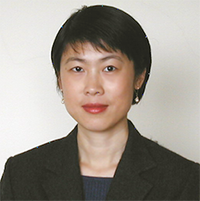 Kunxin Luo
Kunxin Luo
Professor of Cell and Developmental Biology, Department of Molecular and Cell Biology
Grant: New Research Grant
Title: Targeting Transcription Elongation Complex for Breast Cancer Therapy
Abstract: This proposal focuses on the important but under-studied role of transcription elongation machinery in human breast cancer progression and is designed to test the hypothesis that the transcription elongation complex plays a critical role in regulating breast cancer invasion and metastasis through controlling the expression of essential metastasis regulators, and targeting this complex may be a viable therapeutic approach to halt breast cancer metastasis. By combining in vivo xenograft mouse models with human breast cancer cell lines, we will test whether perturbing the activity of the transcription elongation machinery can impact breast cancer progression. We will also attempt to identify and test potential inhibitors of transcription elongation complex in breast cancer therapy. This study will provide conceptually novel insights into how the general transcription elongation machinery can be targeted and modulated to achieve functional specificity during carcinogenesis and will have important clinical implications for developing drugs that can effectively block breast cancer metastasis.
Profile: Dr. Kunxin Luo is a Professor of Cell and Developmental Biology in the Department of Molecular and Cell Biology at UC Berkeley. She received her Ph.D. degree in biology from UC San Diego and postdoctoral training at the Whitehead Institute for Biomedical Research at MIT. She came to UC Berkeley in 1997 and has been studying the basic mechanism of intracellular signal transduction and the roles of these signaling pathways in development, aging and cancer. Dr. Luo is an elected fellow of the American Association for the Advancement of Science and is recognized internationally for her seminal studies on the signal transduction pathways that regulate cell proliferation, differentiation, normal tissue functions, and pathological processes, including cancer and aging. She serves on the Editorial Board of scientific journals and as members of various NIH intramural program review committees, extramural study sections as well as international funding agencies to promote scientific excellence and high quality research.
Collaborator in China: Dr. Yuhua Xue, School of Pharmaceutical Sciences, Xiamen University, China
Previous Recipients
2012
Alison Gopnik
How Culture Shapes the Way We Think: A Cross-cultural Comparison between Young Children in the U.S. and China on Reasoning about Physical Causes and Perceptions of Other People's Behavior
Lynn Huntsinger
Adaptations in Pastoral Mobility in the U.S. and China
2011
Brenda Eskenazi
Are We Poisoning Future Generations?
Judith Klinman
How Do Enzymes Work? A Personal and Scientific Odyssey
Sheila McCormick
Pollen-pistil Interactions and Signaling during Pollen Tube Growth
Elizabeth Theil
The Molecular Basis of Enterocyte Iron Absorption From Food (Legume Seed) Ferritin
2010
Peggy Lemaux
Merging Chinese and U.S. Efforts Aimed at Improving Wheat
Barbara J. Meyer
Targeted Genome Editing Across Species Using Zinc Finger Nucleases (ZFNs) and TALE Nucleases (TALENs)
Dawn Song
New Technologies to Secure the Internet
Ting Xu
Directing Stem Cell Using Block Copolymer-based Supramolecules and Magnetic Nanoparticles
2009
Lin He
Indentify Novel microRNAs Regulating Lymphomagenesis
Teresa Head-Gordon
Protein Aggregation Diseases
Barbara Romanowicz
Bin Yu
Seeking Interpretable Models for High Dimensional Data
2008
Carolyn Bertozzi
Chemistry in Living Systems
Connie Chang-Hasnain
Ultra Sensitive and Compact Biosensor for Rapid Identification of Diseases
Yang Dan
Neural Coding and Plasticity in the Visual Cortex: From Synapse to Perception
Mimi Koehl
Swimming in a Turbulent Ocean: The Fluid Dynamics of Microscopic Organisms
Eva Nogales
Structural Characterization of Human SWI/SNF Chromatin Remodelling Complexes
Renee Z. Sung
Epigenetic Mechanism Regulating Vegetative Development in Plants
